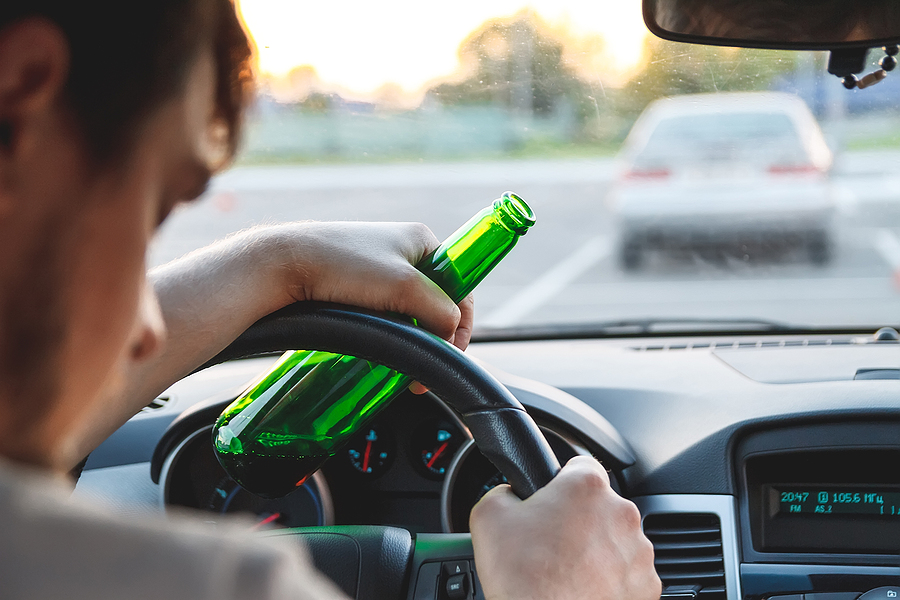It is a myth that you cannot be convicted of a DWI (driving while intoxicated) for prescription drugs in Texas. Most people only think of alcohol in connection with DWIs, but you can be convicted for driving under the influence of any substance that impairs your ability to drive safely, including prescription drugs.

When Can You Be Convicted of A DWI for Prescription Drugs?
In Texas, you can be convicted of a DWI if you are intoxicated due to ANY substance. In addition to alcohol, this includes prescription drugs, over the counter medication, and illegal drugs. DWI laws treat all substances the same.
You can be convicted of a DWI even if you had a prescription and were taking the dosage prescribed by your doctor. Just because you have the right to consume the drug does not automatically mean that you have the right to drive while taking the medication.
Under Texas Penal Code § 49.01, you are impaired if you do not have normal use of your physical or mental facilities due to the consumption of drugs, alcohol, or a combination of both. There is a difference between impairment and taking a therapeutic dosage to treat a medical issue. If you find that the side effects of the medication make you drowsy, impairs your concentration, or otherwise affects your ability to operate a vehicle, you should not take it while driving. You should always read the warning labels and ask your doctor if it is safe to drive while taking the prescription.
Some common drugs that can cause DWIs in Texas include hydrocodone, oxycontin, Vicodin, Zoloft, Xanax, Valium, and Ambien.
How Do Police Prove Prescription Drug Intoxication?
Unlike alcohol, there is no measure of concentration that equals impairment. Everyone reacts differently to medication depending on several factors, including diet and weight. Law enforcement will use several different strategies when deciding whether to make a DWI arrest.
- 12-Step D.R.E. (Drug Recognition Expert) Protocol
The D.R.E Protocol is a 12-step process designed to train officers to identify drug impairment. Among other things, the officer will evaluate your conduct (e.g., are you tired, alert, agitated, or unresponsive) and whether you openly admit to using prescription medication. This test was designed by law enforcement, not scientists, and it can lead to false arrests.
- Field Sobriety Test
Field sobriety tests are used to test a person’s balance, attention level, and coordination.
- Blood Test
The police officer may ask you to submit to a blood test to establish the presence of drugs in your system.
What Happens If You Refuse to Submit to a Chemical Test?
You are allowed to refuse to take a blood test. However, Texas has an implied consent law which states that any person who has accepted a driver’s license from Texas consents to a chemical test when requested by law enforcement. If you refuse the test, it will lead to an automatic driver’s license suspension.
In serious cases, law enforcement officers can obtain a search warrant requiring the test to be administered, even if you refuse. This is likely to happen when there was an accident resulting in death or severe injury.
What Are the Penalties for a DWI for Prescription Drugs in Texas?
DWI convictions for alcohol and prescription drugs are penalized the same. There are different penalties depending on whether you are a repeat offender and the circumstance surrounding the arrest. Defendants can face fines, jail time, and suspension of their driver’s license, along with other collateral consequences.
- First DWI
Your first DWI is categorized as a Class B Misdemeanor. It is punishable by a fine of up to $2,000 and jail time from three to 180 days. In addition, your driver’s license will be suspended 90 to 365 days. If there was an open container of alcohol in the car, the minimum jail time is increased to six days.
- Second DWI
Your second DWI conviction is categorized as a Class A misdemeanor punishable by a mandatory jail term of three days to 1 year and a fine of up to $4,000. Your driver’s license will be suspended from 180 days to two years.
- Third DWI or Higher
Your third DWI is categorized as a third-degree felony punishable by two to ten years in prison and a fine of up to $10,000. Additionally, your driver’s license will be suspended from 180 days to two years.
Speak to an Experienced Frisco Attorney
If you or a loved one have been charged with a DWI offense for prescription drugs, you should immediately reach out to a local Frisco criminal defense attorney. Philip D. Ray is an experienced criminal attorney and former prosecutor who will provide you with a skilled and aggressive defense. He has years of experience defending individuals from DWI charges in Frisco, Texas. Call The Law Offices of Philip D. Ray today at (469) 588-6770 for a consultation.
